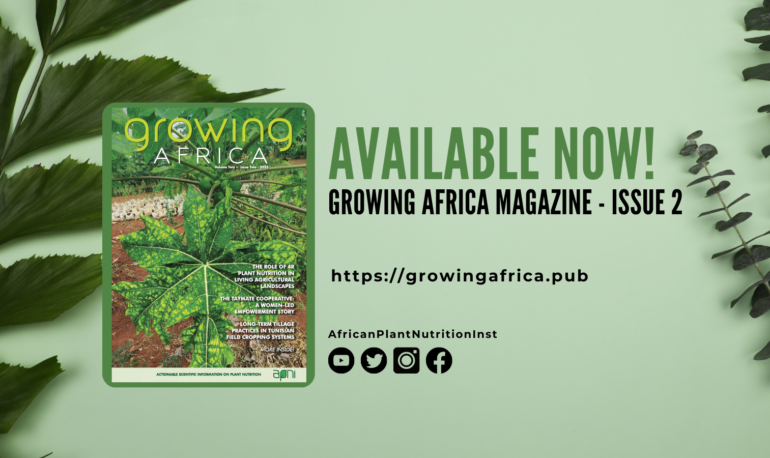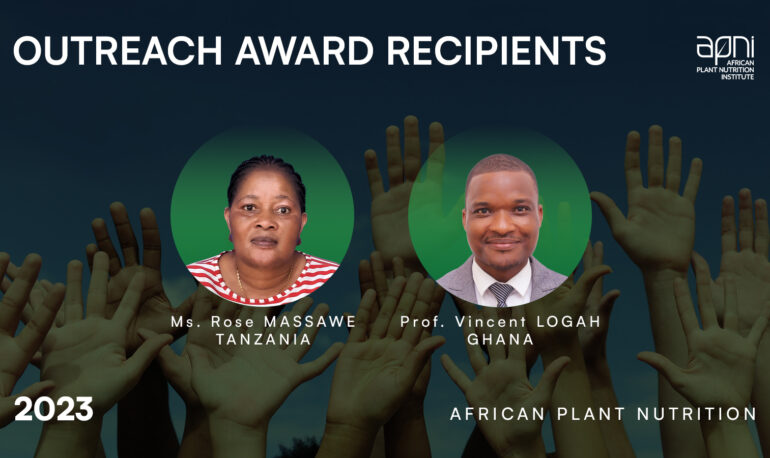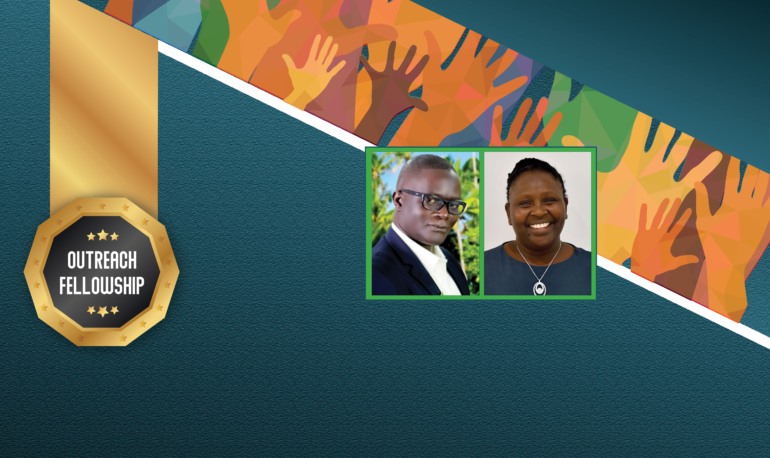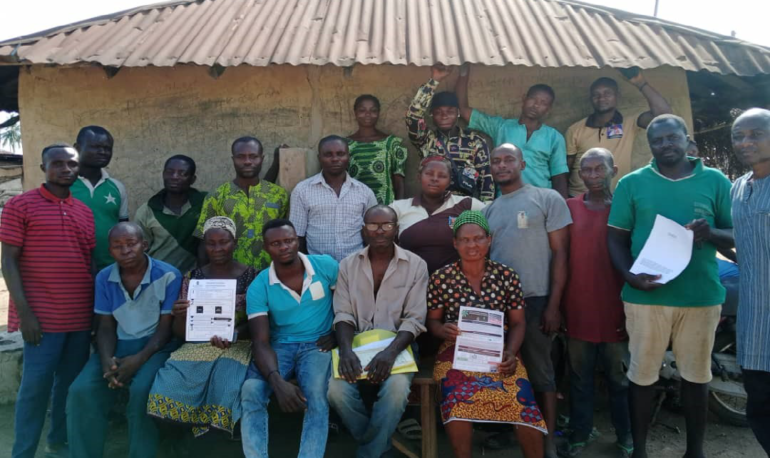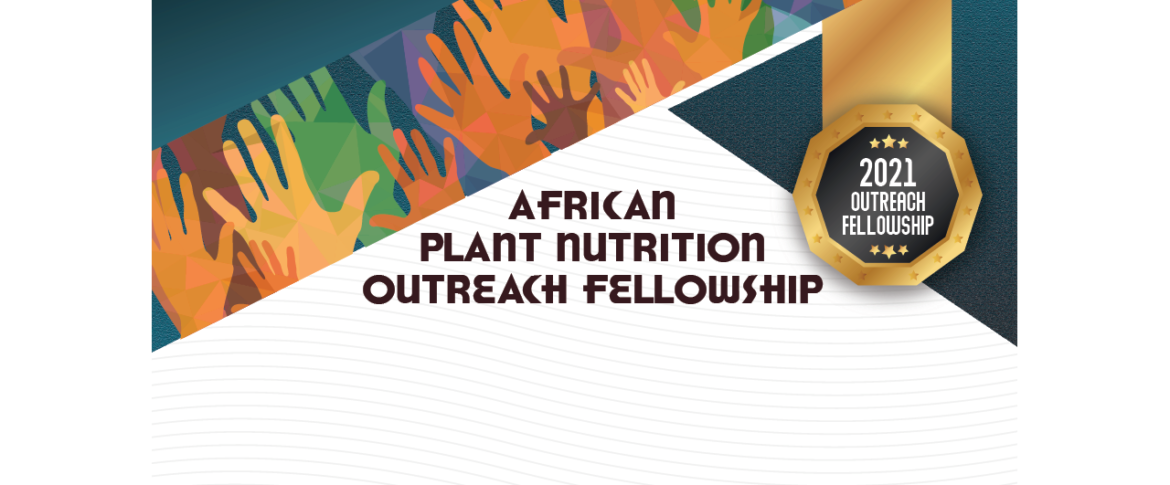
African Plant Nutrition Outreach Fellowship
Project Lead

African Plant Nutrition Institute
Implementing Partners

Mohammed VI Polytechnic University (UM6P)

OCP Group
Target Countries
African Continent
Other Targets
Support education, training, and communication programs relevant to improving the use and efficiency of plant nutrients in African agro-ecosystems.
Short Description
The African Plant Nutrition Outreach Fellowship program was implemented in 2020 to support education, training, and communication programs relevant to improving the use and efficiency of plant nutrients in African agro-ecosystems.
Scientists, extension specialists or educators working at an African NARES institution (National Agricultural Research and Extension System), African university, non-profit organization, or in the private sector are eligible to apply.
The application is only available on-line at www.apni.net/outreach-fellowship-apply.
2023 Selections
Prof. Vincent Logah, Kwame Nkrumah University of Science and Technology (KNUST), Kumasi, Ghana
Short Description
Most of the smallholder farmers in Ghana have yet to benefit from recent research findings and new initiatives by agricultural scientists in Ghana. In most instances, farmers do not use the right type of fertilizers, which are also either under- or over applied using unsuitable methods. This work plans targeted educational and outreach activities to train farmers on the 4Rs of nutrient stewardship and to introduce them to the outcome of new research initiatives in nutrient management in Ghana. It also involves collaboration between key stakeholders to translate research into practice.
The main objective is to increase nutrient use efficiency and productivity of smallholder farms in the breadbasket regions of Ghana through tailor-made outreach and hands-on training programs. Specifically, the proposal seeks to develop customized training modules and manuals for farmers on good nutrient stewardship and new research findings, deliver hands-on training for the targeted farmers using the modules and manuals developed. The work will contribute to increased productivity of agro ecosystems in Ghana. This will also ensure nutrient use efficiency and environmental sustainability, partly serving as a pilot activity for implementation of recent fertilizer research in Ghana. More so, the capacity of key stakeholders in the agricultural value chain will be built to facilitate replication and dissemination of the strategies and technologies taught.
Ms. Rose Moses Massawe, Regional Agricultural Extension Advisory, Arusha Region Secretariat, Arusha, Tanzania.
Short Description
Longido District is in the north-eastern corner of Tanzania in Arusha Region, on the leeward sides of Meru and Kilimanjaro mountains. In Tanzania drought has significantly worsened food insecurity, livestock and crop losses, and outbreaks of insect pests and diseases. Drought is more common in different regions of Tanzania including Arusha Region. Londigo is among the most drought-stricken districts of Arusha region, where poverty is also estimated to be high.
As a response to the climate related risks in Longido, this project seeks to accelerate the uptake of the Climate Smart Agriculture (CSA) activities for strengthening local adaptation and building resilience, and training farmers on improved agronomic practices. Specific objectives include the establishment of demonstration trials for promotion of CSA and improved agronomic practices for maize, beans and Irish potatoes (i.e., early planting, crop rotation, and intercropping). Field days will be organized to further promote the new strategies to farmers and extension officers and disseminate educational material planned for development. The project intends to use the established or existing village savings and credit organizations (SACCOS) as a vehicle for accelerating the uptake of CSA activities for strengthening local adaptation and building resilience.
2022 Selections
Mr. George Mbyazita Karwani, Agricultural Research Officer, Tanzania Agricultural Research Institute (TARI), Selian, Arusha Tanzania
Short Description
The ability of extension programs to sustainably intensify smallholder maize production at larger spatial scales is limited by lack of appropriate decision support tools. A dynamic and robust site-specific nutrient management (SSNM) approach can help extension service providers and development agencies to provide farmers with reliable and accurate site-specific fertilizer recommendations that can increase yield and profit for these farmers. This study plans to establish and upscale SSNM recommendations for maize smallholder farming systems as a suitable technological package for the Northern Zone of Tanzania. Demonstration trials will be established to verify the performance of SSNM recommendations derived from the Nutrient Expert(NE) tool. Further outreach will familiarize NE recommendations amongst smallholder maize farmers and extension officers as an alternative to blanket fertilizer recommendations. The study’s participatory approach for the farmer managed trials, will involve farmers throughout the planning and implementation process, which will help to ensure high adoption of the technology within the targeted districts.
Dr. Ruth Njoroge, Department of Soil Science, School of Agriculture and Biotechnology, University of Eldoret, Eldoret, Kenya
Short Description
The Outreach Centre at the University of Eldoret (UoE) offers farmer trainings based on expert opinion; however, improved nutrient management adoption in smallholder systems requires more holistic, practical, and innovative approaches. Farmers need a better understanding of the consequences of improper soil management; soil health concepts focused on physical, chemical, and biological properties; soil testing and fertilizer use; climate change and climate-smart nutrient management; and integrated soil fertility management that embeds agro-ecological principles. This participatory project will implement on-farm trainings via a “Living Labs” approach involving farmer managed field plots demonstrating crop responses to appropriate fertilizer application and other integrated agronomic practices geared towards nutrient use efficiency. A qualitative soil fertility testing tool (QSFTT) is envisioned through transdisciplinary integration of science and indigenous knowledge. The simple decision support tool would provide farmers with a stepwise system of guidance to increase awareness on on-farm soil fertility status, provoke him/her to make the right decision regarding soil fertility maintenance, and increase motivation to seek expert guidance when needed.
2021 Selections
Mr. Mustapha EL JANATI — Mohammed VI Polytechnic University (UM6P) / Institut Agronomique et Vétérinaire HASSAN II, Rabat, Morocco
Mr. El Janati’s project is focused on the promotion and extension of best management practices for composting date palm residue within the unique desert oasis agroecosystems that are cultivated intensively in Morocco.
“The sustainable management of agricultural soils must adapt to changing types of agricultural production and societal expectations. In order to improve the efficiency of the fertilizers supplied, particular attention must be paid to the recycling of crop residues,” explains Mr. El Janati.
The date palm is the environmental, economic and social pillar of the oasis ecosystem in the Saharan and Pre-Saharan regions. It creates the “oasis effect” in the form of a favorable microclimate for the organization and development of other associated annual, multi-annual and arboreal crops.
The evolution of oasis production systems in recent decades has led to questions about the best management methods for date palm residues. Un-recycled dry palms constitute a burden on the oasis and promote the development of diseases and pests harmful to the date palm and other associated crops. Dry palm incineration contributes to air pollution and the spread of fires.
“The project’s purpose is to accelerate dissemination of composting best practice to farmers with a goal of better management of dry palms and sustainable development of oases,” continued El Janati.
To this end, Mr. El Janati proposes to supplement the current knowledge base and increase the interest of advisers and extension workers on the production and use of dry palm composts in oasis production systems.
Dr. Mutiu Abolanle BUSARI — Federal University of Agriculture, Abeokuta, Nigeria
Dr. Busari’s project centers around expanded dissemination of AKILIMO (a Swahili word meaning Intelligent Agriculture or Smart farming) technology to farmers located in the many of the cassava-producing states of Nigeria that have been yet to be touched and are unaware of this advanced fertilizer recommendation decision support tool.
“Agricultural extension agents in these states need to be trained so as to equip them with the working principles of the AKILIMO tool,” explains Dr. Busari. “The impact of COVID-19 is making this extension effort difficult and the pandemic has caused a serious food crisis in Nigeria such that the deployment of agronomic advisory tools like AKILIMO is urgently needed.”
So far, farmers in major cassava-growing states of Ogun, Oyo and Osun States in southwest Nigeria have benefited significantly in terms of yield and profit from the use of the tool. Through an extension of training-of-trainer events and on-farm data collection, the project hopes to bridge the common knowledge gaps in the states of Ondo, Ekiti and Lagos.
“By facilitating greater use of the AKILIMO tool within the decision-making process on fertilizer use, we can begin to raise cassava yields across a larger area and address the critical issues of food security in Nigeria,” added Busari.
2020 Selections
Prof. Kwame Agyei Frimpong — University of Cape Coast, Ghana
Prof. Frimpong’s project proposal centers around the promotion of effective soil fertility management in smallholder farming communities in Ghana.
“This outreach is intended to contribute to improvement in the livelihoods of the beneficiary farmers through increased crop yields and farmer incomes”, explained Frimpong. “By influencing farmer perceptions and addressing their socio-economic orientations through enhanced access to needed information, it is expected that the outreach will lead to the design and future implementation of better-informed soil fertility and plant nutrition policies among the beneficiary farmers.”
The outreach program will use modern, effective and socially acceptable communication tools to generate evidence-based data and information on indigenous soil management practices, and incentives for effective use of fertilizer in two communities in Ghana. Findings and recommendations of the study will be used to design a fit-for-purpose advocacy and capacity building program for smallholder as well as serve as the basis for a more comprehensive study across the country. Ultimately, this will enhance the adoption and integration of more effective soil fertility management practices into the Planting for Food and Jobs’ policy (PF&J) towards achieving the Sustainable Development Goals of no poverty (SDG 1) and no hunger (SDG 2) through improved agricultural productivity and food security and job creation across the country.
Prof. Bosede Olukemi Lawal — Institute of Agricultural Research and Training, Nigeria
Prof. Lawal’s project proposal is designed to promote integrated soil fertility management (ISFM) technology for sustainable maize production among smallholder farmers in southwest Nigeria.
The project involves to use of a Farmers Field Schools (FFS) approach of extension and use of text messages, voice calls, radio jingles, training sessions and production of knowledge products for mass dissemination of information on the ISFM technology to farmers. Farmers groups are also linked with input dealers, financial institutions and the market for sustainability of the ISFM technology. Moreover, android-based information sharing will be developed for mass dissemination of the technology.
The main beneficiaries of the project are maize farmers and their households. As a result of the training activities, communication approach and tools, beneficiaries’ capacities to tackle soil fertility problems will be greatly increased. This will eventually contribute to increasing maize yields, and therefore food security and nutrition; protecting livelihoods; and generating higher income. Improved livelihoods will ensure better access to health facilities, balanced diet and quality education to their children. However, the project will also benefit other stakeholders who will benefit from improved income. It will ultimately translate to food security, good health and reduced poverty.

